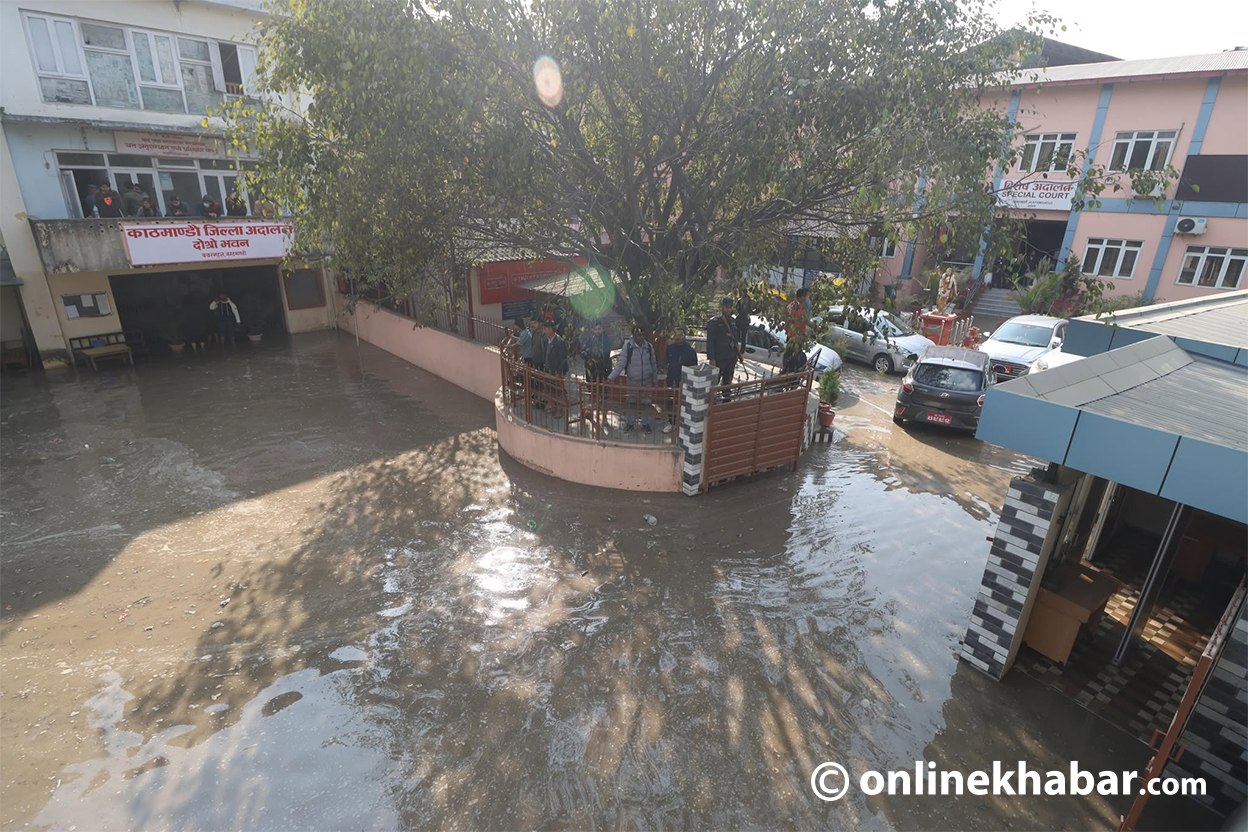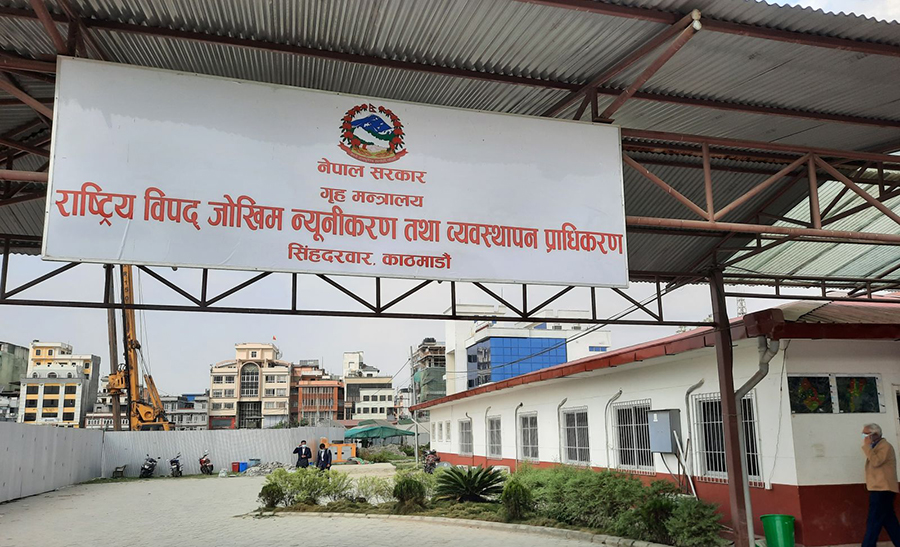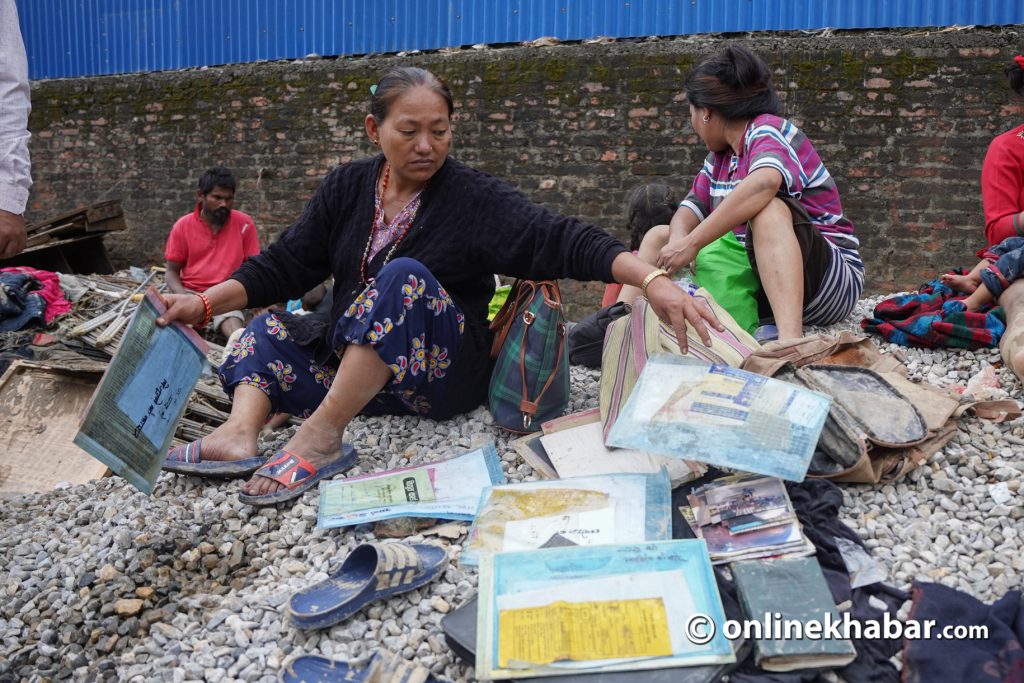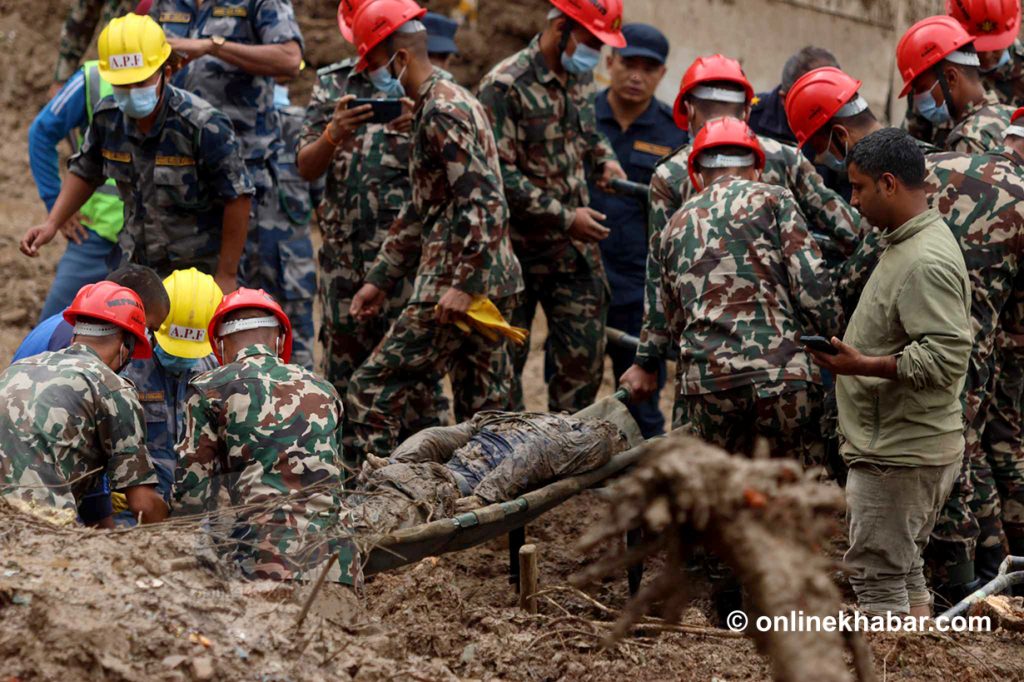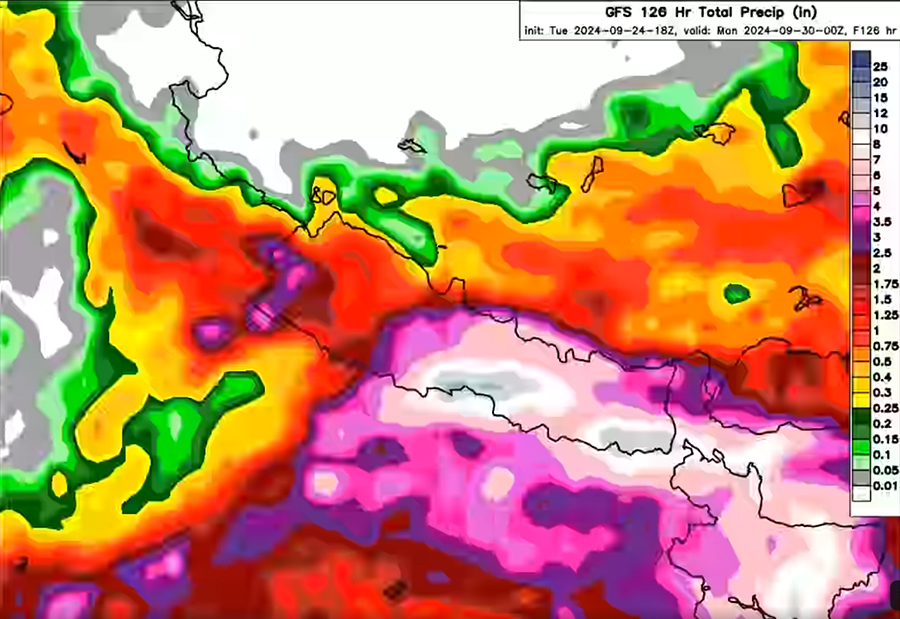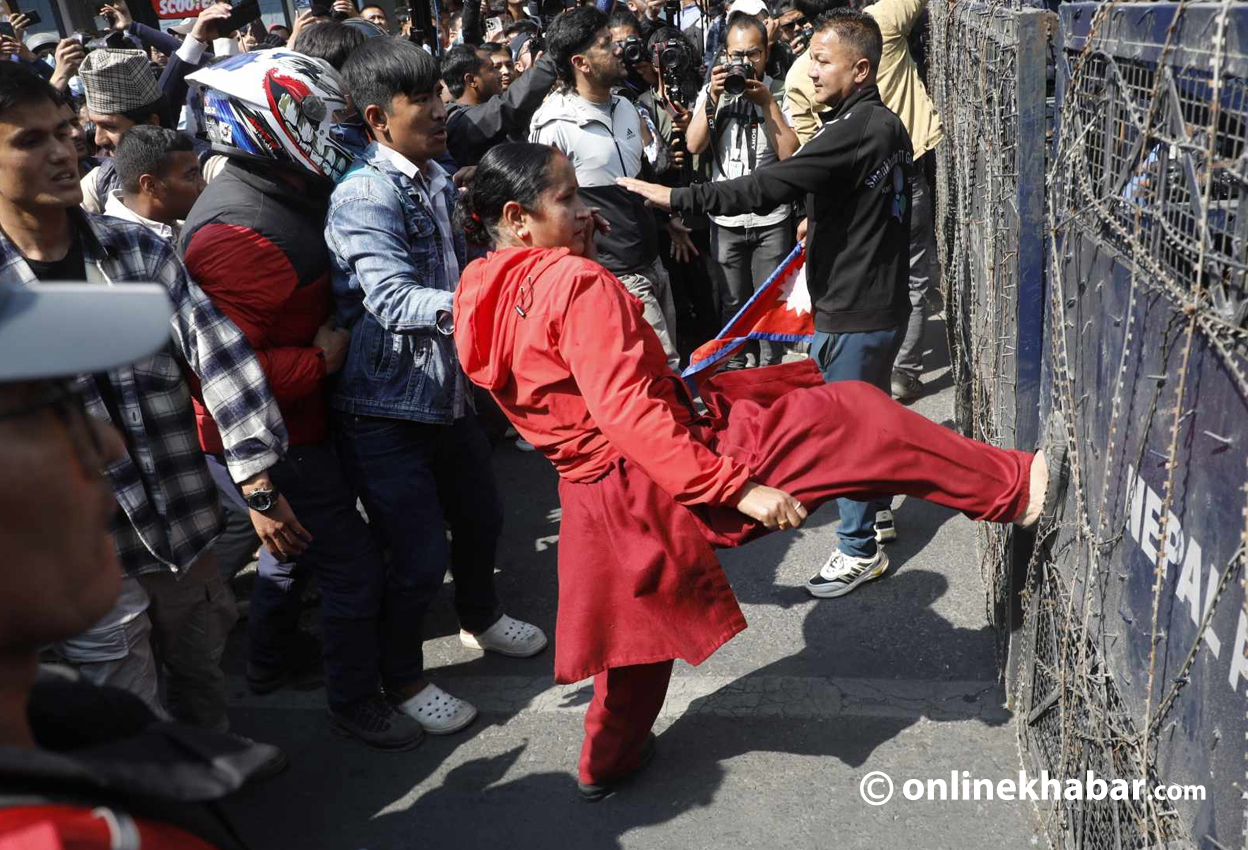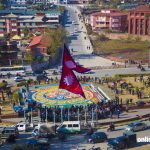
Madan BK of Churey Rural Municipality-4, Kailali, teaches at Jagati Samaiji Basic School, which is located in the same rural municipality. Apart from teaching, he has additional duties during the monsoon season, such as helping students cross the river Kalo Khola.
“Due to the absence of a bridge, students depend on me to cross the river,” says BK.
Flooding cancels classes and exams

Without a bridge, students cannot cross the river alone during the monsoon. Students from Tudeypani and Barjugada attend Samaiji School, which has classes up to grade six. After grade six, students need to study at Durga Secondary School in Hadkhola, Godawari Municipality-4. To reach Durga Secondary School, students must also cross the Kalo Khola.
Students are often compelled to miss their classes and exams due to flooding.
“Just recently, due to three continuous days of rainfall, I couldn’t attend school,” says BK, “Since I could not cross the river, the students also did not go to school.”
During the monsoon, students have to reach school in wet uniforms. Currently, a first-term examination is underway, which makes BK additionally responsible for helping students cross the river.
“I don’t want students to miss their classes and exams, so every day I help them cross the river,” says BK.
Sometimes, guardians help the students cross the river, but after school, the guardians are busy with their work. During such times, BK has to be there to assist the students.
“While crossing the river, I even have to carry students on my shoulders,” says BK. “There is a constant fear that the flood can sweep us away at any time.”
Poor infrastructure endangers the community

Tara Bahadur BK, President of the school management committee of Samaiji School, echoes Madan BK’s concerns regarding the risk of students being swept away while crossing the river. “Neither teachers nor students attend school when there is continuous rainfall,” says Tara Bahadur BK.
The lack of bridges over the river primarily affects children, elderly citizens, and patients, he adds. According to the locals, it is risky to cross Kalo Khola. Guardians say that due to the increased water level in the river during the monsoon, it is unfavourable to send children to school.
Santoshi BK, a local of Churey Rural Municipality, says, “I go to watch the river, and only if it is possible to cross do I send my children to school.”
Locals say that the flooding can even sweep away those who try to cross it. A week ago, Nar Bahadur Kami was swept away by Kalo Khola while heading to Muribhawar of Godawari Municipality. He was carried away 20-30 metres by the flood and was rescued by locals.
Kami, who is now resting, says, “Due to the rain and flood, I haven’t been able to reach the hospital and have been deprived of treatment.”
Last year, the president of the school committee, Tara Bahadur BK, was also stuck in the flood of Kalo Khola. He was rescued by locals after 11 hours.
Additional agonies
According to him, the majority of people in the area are from the Dalit community. To go shopping, one needs to go to Atariya, which also requires crossing Kalo Khola.
Instead of Kalo Khola, locals can take the route of Bharaney Khola, but during the monsoon, it is equally difficult to cross. The village does not have electricity. Although electric poles were installed three years ago, there are still no wires on them.
“Although Kailali is a developed place, our village is deprived of electricity,” says Tara Bahadur BK. “There have been settlements here for the last 22 years, but our problems have remained unheeded.”
We have demanded a bridge from different levels of government, but all have remained indifferent to us, he adds.






